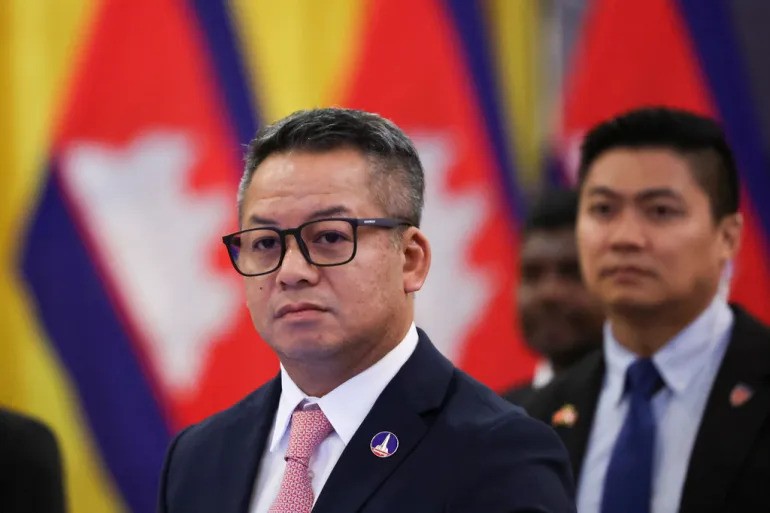Cambodia and Thailand have agreed to allow monitors from the Association of Southeast Asian Nations (ASEAN) to oversee a ceasefire that ended five days of deadly border clashes last month.
The arrangement was reached after four days of talks in Kuala Lumpur between Cambodian Defence Minister Tea Seiha and Thailand’s acting Defence Minister Nattaphon Narkphanit. The Malaysia-brokered truce includes a freeze on troop movements and patrols along the disputed frontier.
The two nations have been at odds for decades over their 817-kilometre non-demarcated border. The most recent violence was triggered by a landmine explosion that injured five Thai soldiers last month, sparking fighting that killed at least 43 people.
Under the deal, each side will form its own interim observer team made up of ASEAN defence officials, coordinated by current chair Malaysia, until a formal mission is deployed.
The United States welcomed the development as “an important step forward in solidifying the ceasefire arrangement,” US Secretary of State Marco Rubio said Thursday. He added that President Donald Trump expected both countries to “fully honor their commitments to end this conflict.”
The truce, reached on July 28, followed economic pressure from Washington. Trump had warned that trade deals would be off the table if hostilities continued. Tariffs on goods from both countries were subsequently reduced from 36% to 19% at the start of this month.
In a surprise move, Cambodian Prime Minister Hun Manet nominated Trump for the Nobel Peace Prize, praising his “extraordinary statesmanship” and “visionary diplomacy” for helping avert “a potentially devastating conflict.”
Despite the agreement, tensions persist. The fate of 18 Cambodian soldiers captured just hours after the ceasefire began remains unresolved. Cambodia accuses Thailand of mistreating the men, while Bangkok calls them “prisoners of war” who will only be released once the conflict ends.
The joint statement avoided direct reference to the captives but urged that they be “immediately released and repatriated after the cessation of active hostilities.”
Relations between the two countries have been strained since May, when the killing of a Cambodian soldier in a border confrontation created a diplomatic rift and inflamed Thai domestic politics.


